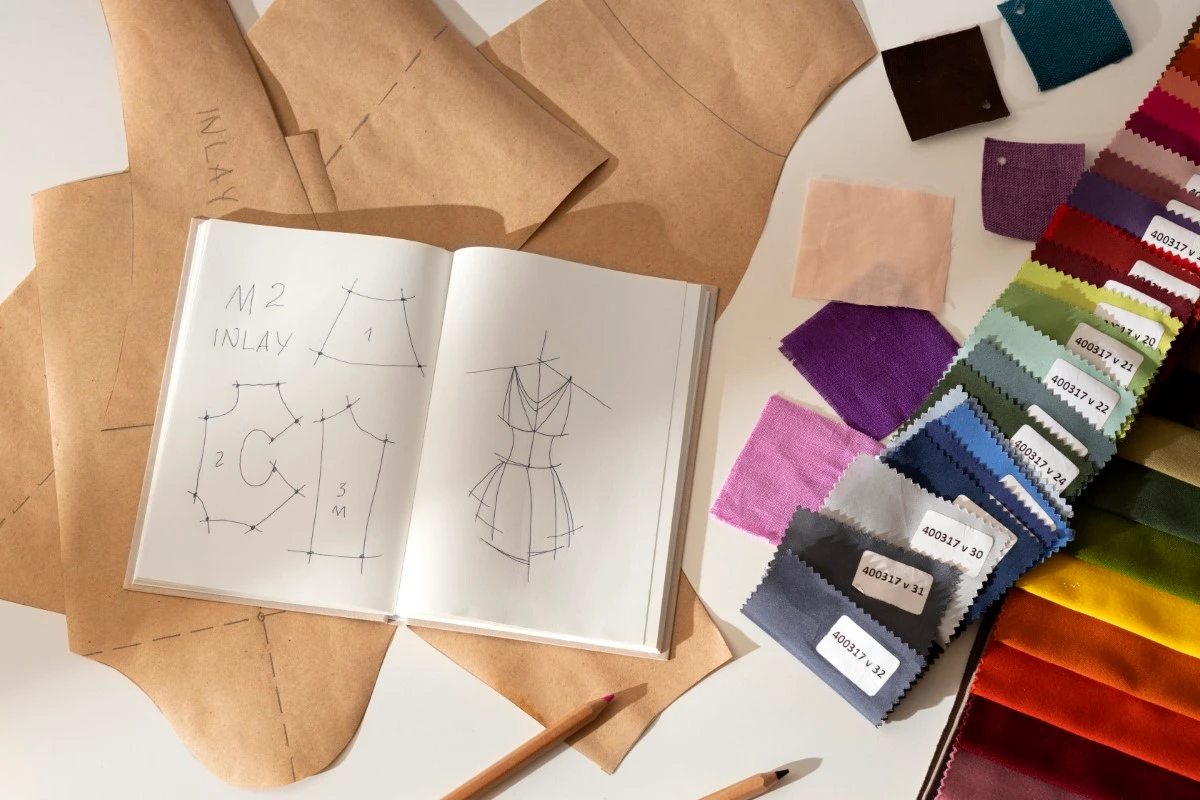
The journey from a fashion designer’s sketch to a final product is exciting but complex. A crucial step in this process is creating samples and prototypes. Clothing sample makers and prototype makers play a key role in turning creative ideas into physical garments. Their work ensures that every clothing line starts on a solid foundation, setting the stage for mass production.
What Do Clothing Sample Makers and Prototype Makers Do?
Clothing sample makers work closely with fashion designers to create the first tangible version of a design. This process involves translating a designer’s vision into a sample garment that reflects the intended style, fit, and fabric choices.
On the other hand, prototype makers focus on apparel prototype development. They create prototypes that test every aspect of the garment, from construction techniques to material performance. These prototypes help fashion brands refine their designs before moving to full-scale production.
Both sample makers and prototype makers use a variety of tools and techniques to bring designs to life. They work with tech packs, which include detailed instructions about measurements, fabrics, trims, and construction methods. These documents act as a blueprint, ensuring that everyone involved in the production process is on the same page.
Why Apparel Prototype Development Matters
Apparel prototype development is a critical stage in the fashion industry. Prototypes allow clothing brands to test their designs before committing to mass production. This step helps identify and fix potential issues early, saving time and money in the long run.
Prototypes also give designers a chance to see how their ideas look and function in real life. They can assess the fit, fabric, and overall design, making adjustments as needed. For fashion brands, this process ensures that the final product meets both their expectations and their customers’ needs.
Custom Clothing Prototypes: Essential for Startups
For startups, custom clothing prototypes are particularly important. New fashion brands often work with clothing manufacturers for startups, who specialize in small-scale production. These manufacturers understand the challenges startups face, such as limited budgets and smaller minimum order quantities.
Creating custom clothing prototypes allows startups to experiment with different designs without committing to large production runs. This flexibility helps emerging brands refine their clothing line and ensure their products meet quality standards before launching.
The Benefits of Working with Skilled Sample Makers
Working with experienced clothing sample makers offers numerous benefits. These professionals bring a wealth of expertise to the table, ensuring that every clothing sample is made with precision.
One major advantage is improved quality control. Skilled sample makers pay close attention to detail, ensuring that the sample meets the brand’s specifications. This focus on quality reduces the likelihood of errors during the production process.
Additionally, experienced sample makers help streamline the design process. They can identify potential issues early and suggest practical solutions. This proactive approach saves time and ensures a smoother transition to mass production.

The Role of Clothing Manufacturers in the Production Process
Once a clothing sample is approved, it’s time to move to the next stage: production. Clothing manufacturers play a vital role in this process. They take the approved sample and produce it on a larger scale, ensuring consistency across every garment.
Apparel manufacturers handle various aspects of garment manufacturing, including fabric sourcing, cutting, sewing, and finishing. They also oversee quality control, ensuring that each piece meets the brand’s standards.
Many manufacturers offer a wide range of services, from pattern-making to private labeling. Private labeling allows clothing brands to customize their garments with unique tags, labels, and packaging. This service helps brands stand out in the competitive fashion industry and build a strong identity.
How Custom Clothing Manufacturers Help Fashion Brands
Custom clothing manufacturers work closely with fashion brands to bring their designs to life. They offer tailored solutions to meet specific needs, whether it’s creating a unique clothing line or producing garments under a private label.
These manufacturers understand the importance of quality and precision. They ensure that every garment reflects the brand’s vision and meets customer expectations. For fashion designers, working with a custom clothing manufacturer provides the support needed to succeed in a fast-paced industry.
Streamlining Production with PLM Software
In today’s fashion industry, technology plays a crucial role in streamlining the production process. Product Lifecycle Management (PLM) software is one tool that has revolutionized how clothing brands manage product development.
PLM software centralizes all product-related information, including design files, tech packs, and production schedules. This integration improves collaboration between designers, sample makers, and manufacturers. Teams can access real-time updates, ensuring that everyone stays on track.
For example, when a fashion brand develops a new clothing sample, PLM systems help track changes and communicate updates efficiently. This level of organization reduces errors and shortens lead times, making it easier to bring products to market quickly.

The Impact of PLM on Quality and Efficiency
Using fashion PLM improves both quality and efficiency in garment manufacturing. By providing a clear overview of the production process, it helps identify potential issues early. This proactive approach ensures that the final product meets high standards.
For fashion brands, PLM software also simplifies project management. It allows teams to monitor progress, manage deadlines, and make informed decisions. Whether it’s designing a new clothing line or refining an existing one, PLM tools keep everything running smoothly.
Conclusion
Clothing sample makers and prototype makers are essential players in the fashion industry. They transform creative ideas into tangible garments, laying the groundwork for successful production. By working closely with skilled professionals and leveraging tools like PLM software, fashion brands can streamline their product development process and deliver high-quality garments to their customers.
Whether you’re an established fashion brand or a startup, investing in quality sample development and efficient production tools will set your clothing line apart. In a competitive market, these steps ensure that your garments not only look great but also meet the highest standards of quality and performance.





Leave a Reply